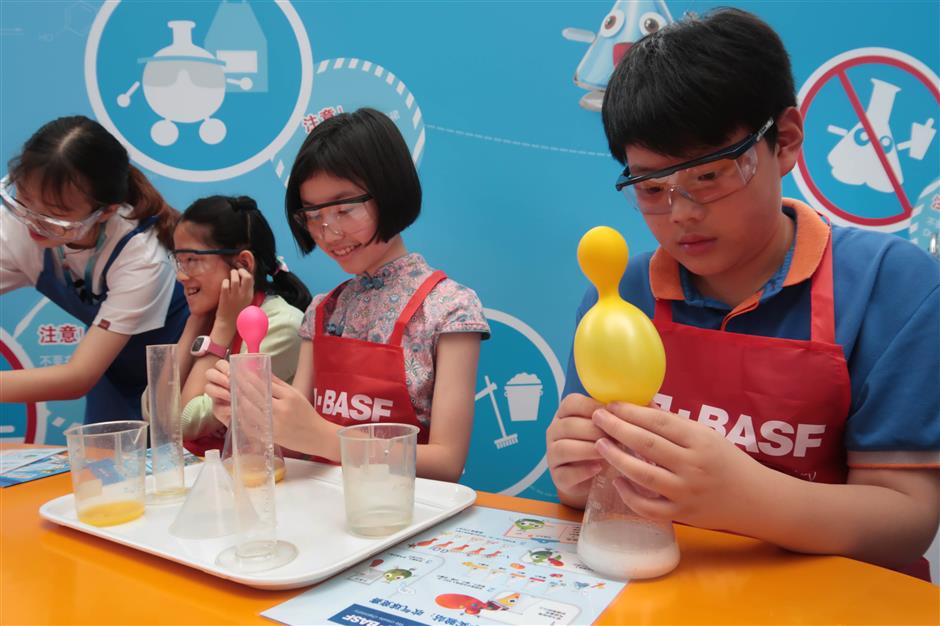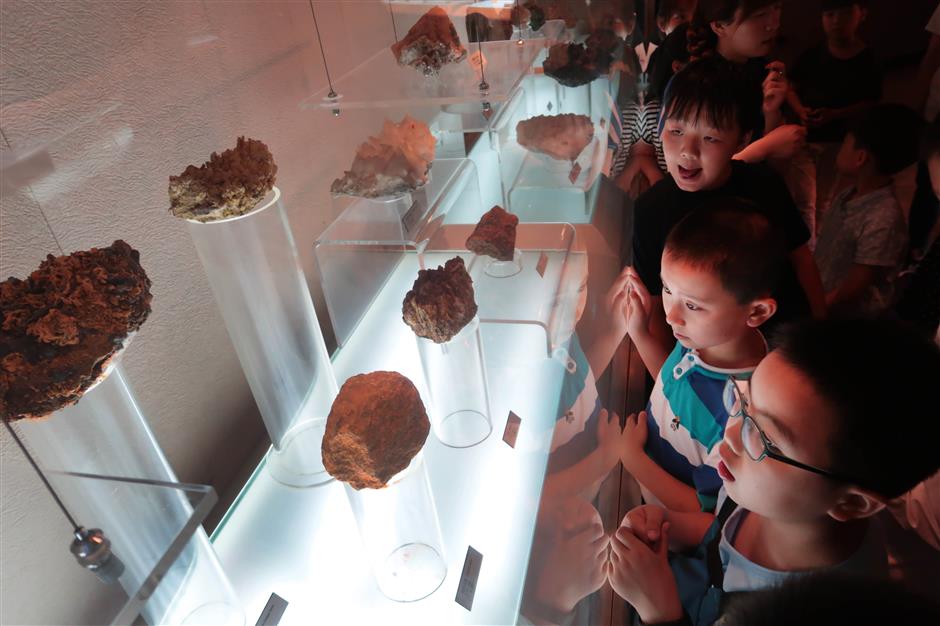Kids learn science is fun

Children try to inflate the balloons.
For children who are keen on natural sciences, the BASF Kids’ Lab is a good choice during the summer vacation to explore the sciences in daily life.
Launched by the world’s leading chemical company BASF in Germany in 1997, the lab includes thought-provoking experiments for kids aged 8-12, designed to stimulate interest in chemistry and the natural sciences. The program is run in more than 30 countries worldwide.
The first overseas Kids’ Lab was kicked in Beijing in 2002 to commemorate the 30th anniversary of the establishment of diplomatic relationship between China and Germany.
Since then, more than 184,000 children in China have participated in the lab, taught by trained volunteers. Children can sign up for the lab at Shanghai Science and Technology Museum through July 15. And the best part is that it’s completely free.

Dr Harald Lauke (right), president of advanced materials and systems research for BASF Asia Pacific, and Yao Qiang, deputy Party secretary of Shanghai Science and Technology Museum ring the bell to kick off BASF Kids' Lab in Shanghai.
This year’s highlight is an experiment of inflating a balloon, which was designed by two female students in Hong Kong during an experiment challenge. On July 5, groups of fascinated fourth graders from Gaoqiao Zhulin Elementary School released baking soda from balloons into beakers full of various liquids. The goal was to find out which combination would expand the balloons the most.
College student volunteers led the experiments, asking questions and offering encouragement at every step. The kids soon discovered that vinegar was more successful than water.
Humanity faces many challenges, notes Dr Harald Lauke, president of advanced materials and systems research for BASF Asia Pacific, including overpopulation, accessing clean food and water and conserving limited resources.
“We need innovative solutions to tackle those challenges,” he said, “and chemistry is a key driver of innovation. We hope one of these kids might one day become a student of the natural sciences and work on sustainable solutions for the future.
“That’s a major goal of the program — to stimulate excitement towards chemistry in young kids through simple and safe chemistry experiments. For one day, kids become scientists."
This year, children participating the lab can also visit the ore hall guided by BASF scientists and know the behind-the-scene stories about various metal-bearing rocks.
(Nicole Li is also contributing to the article.)

Children try to find out which combination of liquid would expand the balloons the most.

Children are fascinated by the natural beauty of ores.















